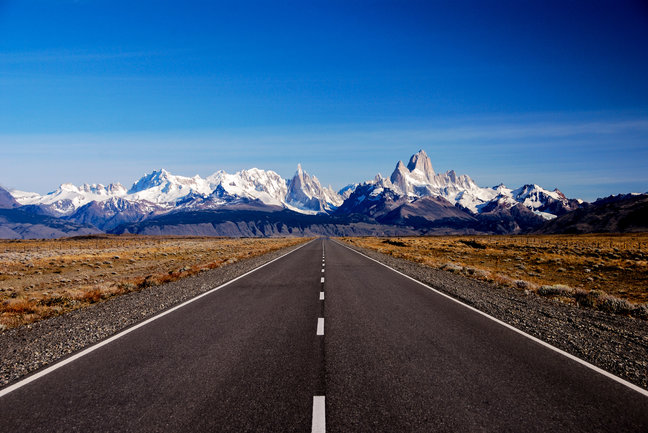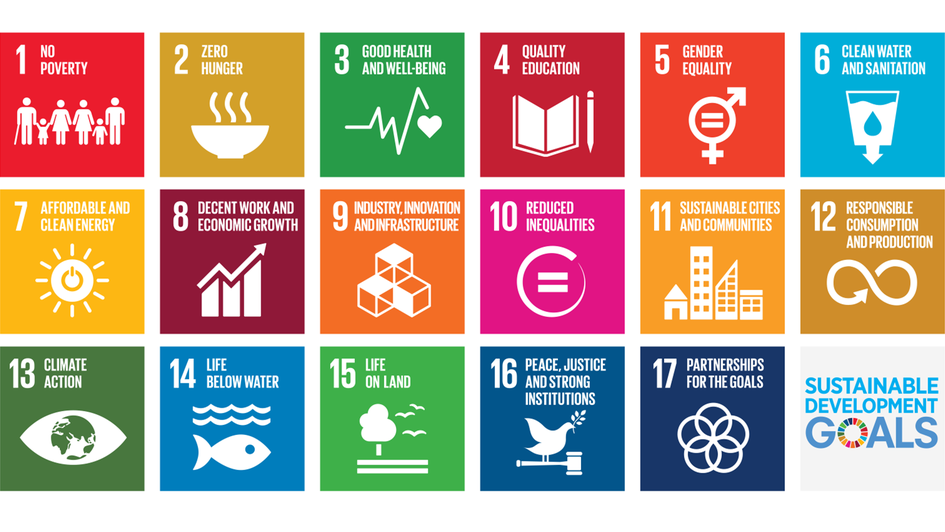Hello everyone,
Here’s the fourth entry in a series of blogs from writer, rider, and environmentalist explorer, Michael Kristensen. He’s a native Dane riding through South America, exploring opportunities and cultural challenges to sustainable environmental practices.
His Facebook page is here.
The original blog appears here.
Every week (possibly more often) Michael will be riding through South America, remarking on his experiences, and blogging at length. We at Tessera Guild will follow him every step of the way. This week marks the fourth leg of his journey. His third week is here.
Please note: these blog entries are direct from Michael. No editing. No proofing. As raw as any blog you’ll see.
“When you talk you only repeat what you already know, when you listen you might have a chance to learn something new”
Dalai Lama
The above is one of my favorite quotes, the truth in that is so simple, but yet so hard to live. Whom shall speak and who shall listen, which person is the messenger of truth, and truth from which perspective, which truth is being reflected and how is it communicated?
My meeting with people has shown me another way, I have been frustrated because my plan didn’t play out the way I had expected. I wanted to visit projects and write about them, about people’s initiatives, their great projects and how people can inspire each other to do better for this planet we live on. Let’s say the people I have met have opened a door to another dimension…hmmm maybe just another perspective. It’s about communication. If we only manage to communicate to our peers and repeat what we collectively already know, are we then communicating or just nodding heads? Does the message come through?
We the urban climate-change warriors, yes us Westerns. Look at us! We tell the rest of the world what they must do the change the path we have guided them toward, the path of consumerism. We tell the farmers in Asia that they must stop using pesticides (which we have sold them and promoted) we tell them to grow organic, we tell the fishermen in Brazil to stop overfishing and not to pollute the water with their fishing gear while we trawl our own waters with enormous fishing boats. We the Westerns communicate that from our over-electrified cozy homes filled with stuff, “hygge” and Christmas decorations, while we tend our newly constructed urban gardens and Instagram it. Who are we to tell them anything, maybe we should start to listen instead? Why on earth would they listen to us, when we talk from that perspective?
We have everything they are told to strive for, what’s the argument for them not to get the same as us , we are so overwhelmingly rich on materialistic goods it’s sickening, do we feel hollow and need to find purpose in something, find a battleground for our bad consciousness? Can we start to live like they do, with less?
It’s not that we don’t have some of the answers, because we do, but what does that matter if we can’t communicate it? And more importantly if we don’t want to live it! The fishermen and the farmers that LIVE with nature they might also have some of the answers, but we have been so busy alienate them and make them our enemies, they have become criminals in the public eye, the farmers are polluting the soils and streams, even the oceans, with their pesticides and fertilizers. The fishermen have overfished the oceans without respect for the very element they live off. We tell the Ranchers in Argentina that their cows fart to much and it is killing the planet! Why would they listen to us the urban climate-change warriors, when we are communicating from that perspective?
Then there’s the fight among the different fractions, vegetarians against meat-eaters, vegans against everybody, political left against right, deniers against science (sorry had to do that) the middle-aged gray men against Greta Thunberg, governments against indigenous people, feminists against men. When do we stop fighting each other and start working together toward sustainable solutions we all can agree upon?
I met Ashley and her Husband Pat, on their farm in Uruguay, the couple originally from Chicago has done what most people just talk about, they moved away from the urban gardeners to live a more sustainable life on a farm. A life much more tough but also much more giving. I interviewed them to get their perspective, and to understand what had made them move away from the “easy” life of urban Chicago, to a remote spot in the back hills of Uruguay.
It was actually very easy to make that decision was their reply, they wanted to present another set of values to their two young daughters, than it was possible in the US. The hard part was to get acceptance from the family, and to get them to understand that a simple life on a farm added more value to their life than being part of the rat race at “home”. Ashley with a PhD in environmental sustainability, is well aware that she must fit in and be humble, she tells me that she spend most of her time listening to the farmers in the region, than trying to teach them how to grow their crops or treat their lands. She has a huge deal of respect for the farmers and are well aware that they have most of the answers, not her.
We had a great talk about how to communicate with the stakeholders, how important it is that we communicate by looking at the problem-task-issue-challenge from outside in, meaning that we the stakeholders stand shoulder by shoulder on the perimeter looking in, trying to find solutions together and most importantly we start by finding common ground.
Ashley and Pat have started the https://www.facebook.com/RizomaFieldSchool/ here in their own words(mission) : we hope to educate a network of individuals who can hack, subvert, create, resist and share strategies across contexts. Join us in envisioning and creating a world that can be continually better for all its inhabitants.
They have students coming to study from all over the world, the studies at totally hands on sustainable farming. Ashley has a theory saying that you can only learn so much from books at the University, the real knowledge will be imprinted in the students consciousness by being there and actually do the work, get your hands dirty and see the results of your hard work.
My next encounter with great minds in Uruguay was when I met the wonderful people of the South American Institute for Resilience and Sustainability Studies (SARAS) http://saras-institute.org/ in their own words (mission) SARAS are designed to generate critical insights allowing South America to build sustainable futures. It seeks integration across a broad range of innovative approaches, combining disciplinary domains (social, natural and exact sciences), different sources of knowledge, and art-science interactions.
I was extremely privileged to be invited in, I came uninvited to a conference they held, I was welcomed in to participate in the conference which was about how to make the food industry in S.A more sustainable. there were scientists from all the South American countries and people from as far away as Sweden, Holland, Germany and the USA.
Interesting enough was one of the most important topics “communication” how to involve the stakeholders, farmers, fishermen, ranchers, manufacturers, scientists, producers ect. In a productive and constructive dialog across interests and try not to end up in a polarized political discussion, as they said their most important tribute was building bridges between the stakeholders, SARAS are trying hard to be the epicenter of knowledge sharing. I interviewed a small group of 7 persons, trying to get their opinion about the challenges we face regarding sustainable food in the future and how to deal with it.
The institute are planning a sustainable conference to be held in Uruguay2020, where every possible stakeholder from the food industry are invited and will have a voice. Hopefully some of the answers will be found at this at this event.
The good: All the amazing and super friendly people I have met, its been an amazing experience, even though I kind of know that meeting people with a smile and always communicate in eyelevel in a humble way, mostly result in a smile and compassion right back at you, it’s been overwhelming how welcoming people have been. I mostly stay in private homes found through Airbnb, and without exception have that been wonderful. I have had so many good experiences with people it will require a blog of its own to tell about it, but here is a few outstanding meetings. When I got robbed in La Plata a wonderful young teacher found some of my possessions laying on the street, among that my Green card, some other important documents and some of my clothes, he went through the trouble finding me writing me an email telling me he found the stuff and took time off work to come meet me and deliver it back to me, I tried to compensate him by offering him money, which he refused all he wanted was a picture of me and my bike and a big hug. In Rio we met some outstanding people as well my host Sergio what an amazing man, his outstanding hospitality he totally went beyond what can be expected, our friend Lily and their friends which gave us the most mesmerizing New years evening on the beach of Copacabana, with food drinks and they spend an hour at 3 in the morning finding us a ride back to the hotel, just wonderful people. I spend 5 days in Brazil without any cash because I was in the por part of the far south, people I met gave me credit for food late at night without a worry about me coming back to them the next day to pay up, I still couldn’t change money or find an ATM that would take my credit cards, so they found a guy that accepted my US $, the time I took a ferry and to my big surprise found out that they didn’t accept Visa cards, (we had already taken off) the ticket guy laughed told me to go to a bank when we arrived on the other bank, I did but they didn’t accept visa either, I waited 2 hours for the ferry to return, when they did I offered him US $ which he told me had no value to him , he told me it was a free trip from him smiled and went on with his business. They all did it with a smile and hugs not a bad word or any frustration, they wen out of their ways to help me out. As I wrote I can go on and on with these great encounters.
One more amazing thing is how the Brazilians are cleaning, everywhere I went, gas stations, Restaurants, homes even the beaches are spotless. Copacabana beach is the cleanest beach of that size I have ever been at. Good job guys 😊
The bad (Surprise) wauw the language barrier in Brazil has been far more extreme than I ever expected, hardly nobody speaks English at least not outside Sao Paulo and Rio D J. and they hardly ever speak Spanish either. I had trained my Spanish for a month hoping I could use it in Brazil but NO, and now after spending 5 weeks in Brazil returning to Spanish speaking countries, I have to relearn my Spanish once more very frustrating 😊 honestly it have been hard not to communicate with hardly anybody without google translate for 5 weeks, and my sustainability studies has suffered from that, that’s partly why I have been waiting to blog until I was back in Paraguay and Argentina. Another surprise has been how good the Brazilian drivers are, being on a motorcycle you really pay attention to other drivers, I must say that Brazilian drivers are very cautious and give room for MC¨s thanks guys for a wonderful road experience, I cant recall one bad incident in 5 weeks and traveling more than 3000 miles.
The Ugly hardly nobody has anything to say about sustainability, recycling is horrible, there is on obvious plan for climate change, and very few sustainability projects. The entire Florianopolis area is one of the most beautiful places on earth, but does not have a sewer system or use septic tanks, raw sewerage is being let in to the streams and out in the bay and ocean. I met with a professor that wrote her PhD about sustainability in the area, and it was horrific reading, not even the natives want to change and talk about sustainability, they want the short term benefits from selling parts of their lands to foreigners or expand their houses to be able to earn a few bucks by renting it out. The professor I talked to had given up, she tried to have the government listen to her and do something about the issues, but they had no interest in change, just looking for fast cash selling land to developers.
Beer prices are pretty good domestic beer 1,5 $ for a liter in the stores, 2,5 $ for a liter in bars , imports are 30% more expensive.








